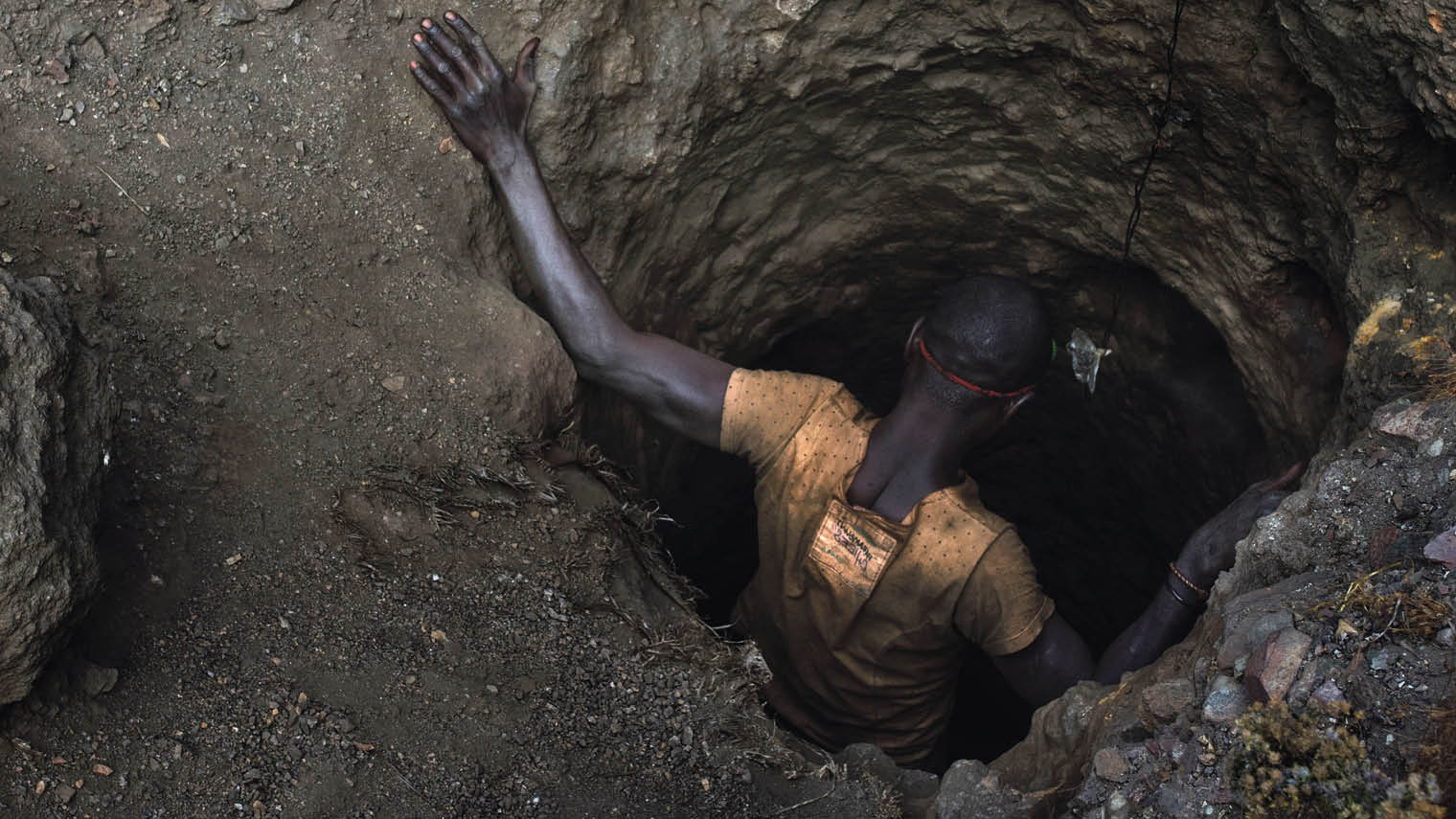Mark Langabeer (Hastings and Rye CLP) reviews the Unreported World Documentary on Channel 4, (29th October – see here).
Jamal Osman, visited the Democratic Republic of Congo (DRC), which mines 70% of the world’s cobalt. This mineral is an essential material for rechargeable batteries in all electric vehicles. The DRC has around £20 trillion worth of natural minerals, and should be one of richest nations. Instead, the majority live on less than £1-50p a day.
He visits the town of Kolwezi, the centre for the mining of cobalt and copper. There are 200 mines, of which a quarter are makeshift in nature. Miners have dug out holes up to 100 metres deep to find the streams of cobalt. They have formed a collective which requires a licence from the government. The risks are so great, that Osman was advised not to enter the shaft. They earn around £3 a day and as one miner stated, they do all the work and foreigners get all the money.
Limb deformities
Osman followed a team of scientists and doctors who have observed that new-borns were five times more likely to have abnormalities in Kolwezi than elsewhere in the DRC. Osman stated that dust was everywhere, from the large mines that are owned by foreign companies. The high number of children with cleft palates is linked to pollution. Limb deformities and enlarged heads (water on the brain) may also be a consequence of the dust.

Doctors stated that it was difficult to ascertain exact causes because of the lack of proper nutrients of many expectant mothers. Scientists have recorded levels of cobalt in the blood streams of local residents four times higher than for people in Europe. The nearby river, had zero biodiversity, because it had been contaminated by sulfuric acid. Further downstream, farmers have complained that the acid had destroyed their crops.
Helpless
Osman requested an interview with the government and representatives of the cobalt companies. The government declined and the companies just gave a written statement which indicated that they were monitoring the levels of pollution and that they weren’t the only mines in the area. Osman states that the miners and their families feel helpless in addressing these appalling conditions. The programme concluded that this is the toxic cost of going green.
In my view, the super-exploitation of the so-called ‘third world’ under neo-colonialism isn’t new. Conditions have some similarities to those in Britain at the dawn of the Industrial Revolution and can only be fully addressed, when private ownership of the means of production and the nation states have been consigned to the dustbin of history.



